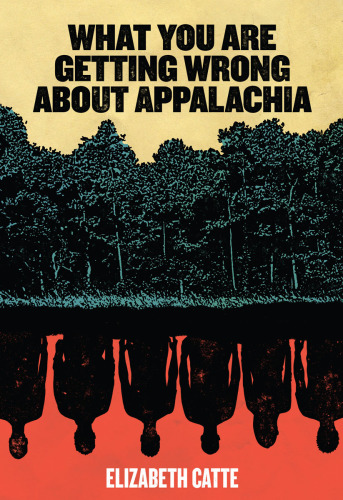
What You Are Getting Wrong About Appalachia
کتاب های مرتبط
- اطلاعات
- نقد و بررسی
- دیدگاه کاربران
نقد و بررسی

October 23, 2017
Catte, a historian from East Tennessee, presents a thoughtful insider’s perspective on Appalachia to counteract the stereotypes associated with the region. She believes that Appalachia—a region of 25 million people encompassing 700,000 square miles across 13 states—is too often presented as a monolithic, dysfunctional “other America” or “white ghetto.” Catte’s Appalachia is instead a “battleground, where industry barons, social reformers, and workers” wage an intergenerational class war. She offers a brief but nuanced history of the region that covers the post–Civil War arrival of industry, the early-
20th-century labor uprisings against exploitative coal companies, government intervention during the 1960s War on Poverty, and the oversize role played in Appalachia’s economy by the current “prison-industrial complex.” Catte also effectively refutes what she refers to as Hillbilly Elegy author J.D. Vance’s “myth”—that white Appalachians share a distinct, homogenous Scots-Irish heritage, rather than a fusion of various European ethnic groups. To highlight the region’s diversity, she observes that for the past three decades African-Americans and Hispanics have contributed most to the area’s population growth and that West Virginia, the only entirely Appalachian state, has the nation’s highest concentration of transgender teens. Though this work could have been more tightly edited, it succeeds in providing a richer, more complex view of a much-maligned region.

November 1, 2017
A terse rebuttal to the vision of Appalachia popularized by J.D. Vance's Hillbilly Elegy (2016).As a historian from East Tennessee whose politics are to the left of Vance's, Catte skewers his "asinine beliefs and associations," which she connects with white-supremacist eugenics and insists do not reflect the rich diversity and often radical activism that she sees in her native region. Vance, she writes, somehow "transforms Elegy from a memoir of a person to the memoir of a culture," a culture that is monolithically white and Scots-Irish, conservative, and culturally backward. In Catte's analysis, much of the growth in the region has come from younger minorities, and most of the problems endemic to it have come from outside corporations that have exploited both its natural resources and its workforce. Furthermore, that power structure has wielded considerable political influence, just as money does elsewhere. Though she finds the term problematic, she says that the model of "internal colony" better explains the region's dynamics, as powerful outside forces control the region's resources and shape its destiny, with the residents becoming mere pawns in their game. In the 2016 presidential election, white voters in the region supported Donald Trump, as conservative white voters did elsewhere, but there was also considerable support for the brand of populism espoused by Bernie Sanders. As for Hillary Clinton's ill-considered comment about how "we're going to put a lot of coal miners and coal companies out of business," Catte writes, "it's not possible for anyone with more than passing knowledge of Appalachia and the coal industry to listen to those comments without cringing, regardless of one's political affiliation." Though Catte's writing is not as colorful as Vance's, her book refuses to allow his version of Appalachia to stand unchallenged.A bold refusal to submit to stereotype.
COPYRIGHT(2017) Kirkus Reviews, ALL RIGHTS RESERVED.

























دیدگاه کاربران